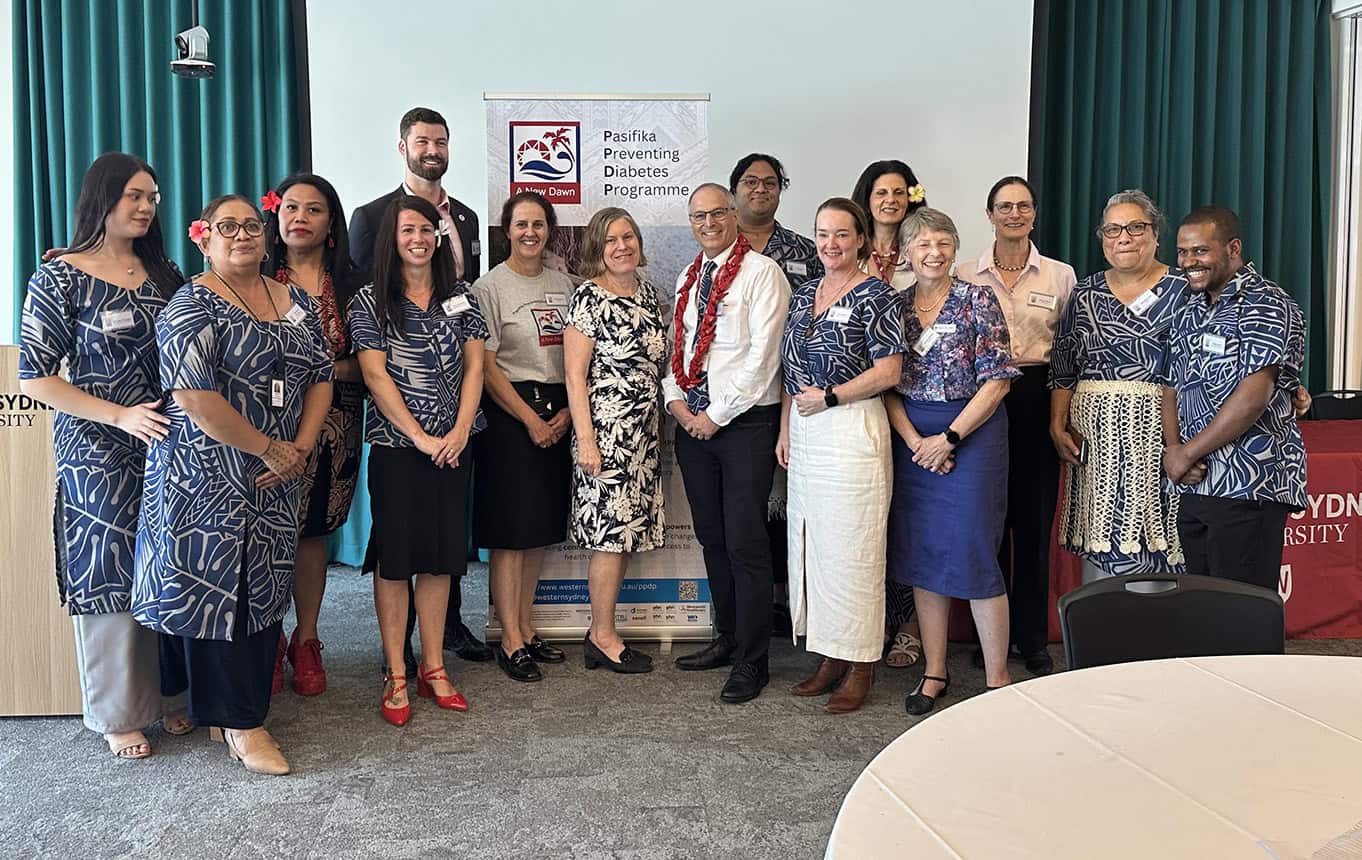Preventing Diabetes: a Community-Driven Approach to Health

More than 100 attendees gathered for the Pasifika Preventing Diabetes Programme (PPDP) Fono Forum recently, an event that showcased a promising initiative tackling Type 2 diabetes within Pasifika communities in Sydney.
The forum brought together key stakeholders, including representatives from Western Sydney University (WSU), the NSW Ministry of Health, SPHERE, multiple Local Health Districts (LHDs), Primary Health Networks (PHNs), Diabetes Australia, pharmaceutical partners, and influential Pasifika community members.
Type 2 diabetes and obesity are significant health challenges for Pasifika communities in Australia, with some of the highest prevalence rates globally. These conditions often lead to severe complications, including nephropathy, placing a considerable burden on individuals and healthcare systems. In response, the PPDP was developed as a step-wedge cluster randomised trial aimed at preventing the progression from normoglycaemia to prediabetes and from prediabetes to Type 2 diabetes. It builds on the success of the ‘La Taeao Afua’ (LTA) which originally piloted the multifaceted lifestyle strategy in the Samoan community, integrating culturally relevant health interventions into Sydney’s Pacific churches. PPDP is the subsequent SPHERE supported $4.3m NHMRC Partnership grant.
Over the course of 51 months, 48 Sydney Pacific churches will introduce the LTA intervention, leveraging their central role in Pasifika communities to ensure accessibility and sustained engagement.
At the halfway mark of the programme, significant progress has been made. So far, 34 churches have engaged in the initiative, with over 1,000 participants—predominantly from Samoan, Tongan, and Fijian backgrounds—actively involved. Early results are promising with reports of significant weight loss and improvements in self-management.
Discussions at the forum also focused on the future of PPDP beyond its current funding period. Attendees explored pathways for embedding the programme into local health districts, expanding youth involvement, and securing long-term financial support from the NSW Ministry of Health. The inclusion of lived experiences further emphasised the programme’s impact, highlighting real-life stories of transformation and resilience.